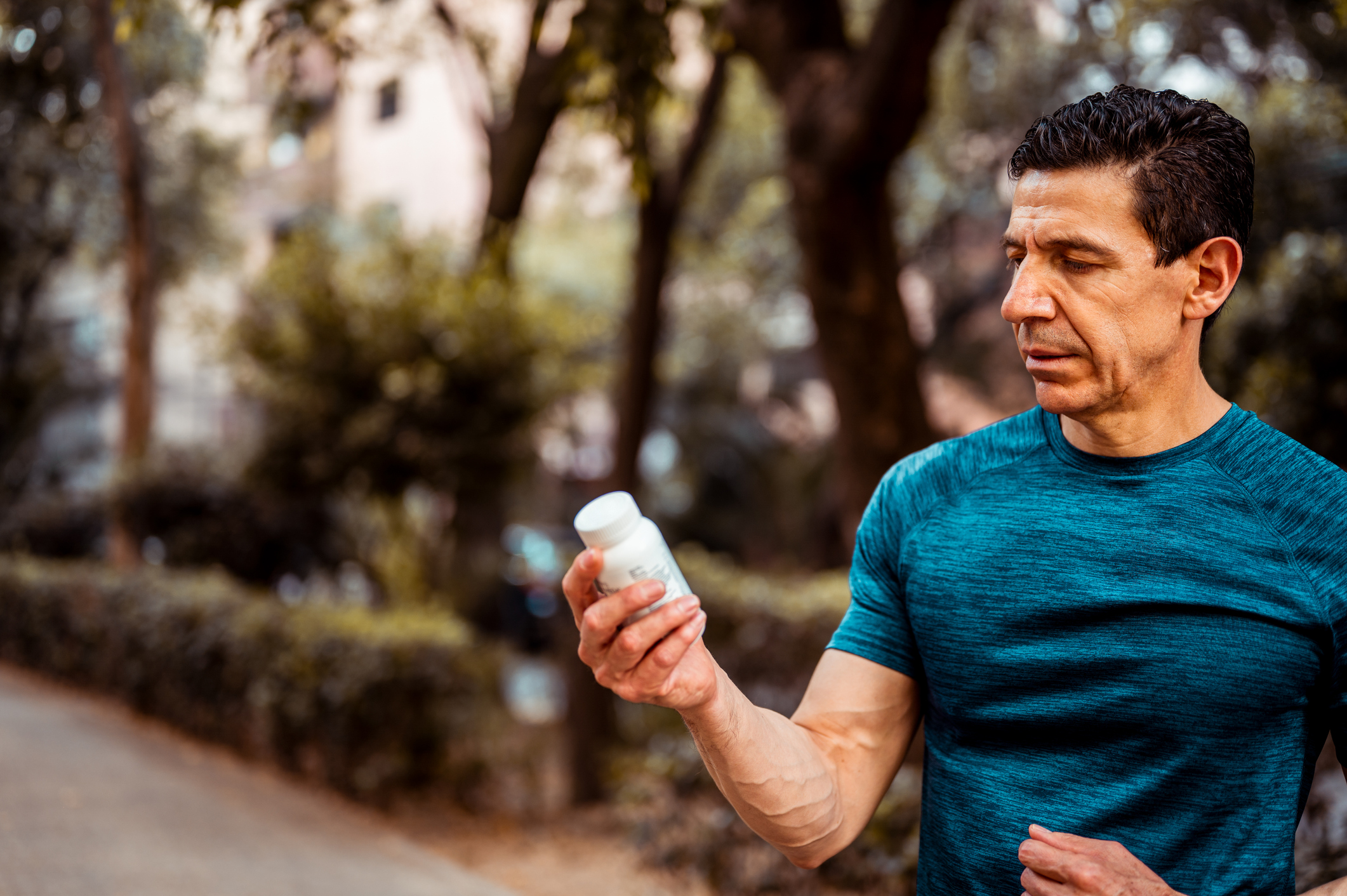Get Easy Health Digest™ in your inbox and don’t miss a thing when you subscribe today. Plus, get the free bonus report, Mother Nature’s Tips, Tricks and Remedies for Cholesterol, Blood Pressure & Blood Sugar as my way of saying welcome to the community!
A bodybuilding supplement may halt Alzheimer’s progression

Physical activity is a potent way to reduce your risk of developing Alzheimer’s disease.
And you don’t need to be a bodybuilder, either. Research shows that just five 10-minute sessions of moderate to vigorous exercise per week can lower your Alzheimer’s risk by over 30 percent!
But what if you are a bodybuilder? What if your exercise goals center around building muscle and upping your exercise performance?
Well, you may just have an edge over the rest of us…
There’s a perfectly safe bodybuilding supplement that seems to have an unexpected side effect: it may keep Alzheimer’s disease at bay — but not only that, it may keep it from progressing…
HMB builds a better brain
Researchers at Rush University Medical Center in Chicago have discovered that a muscle-building supplement called beta-hydroxy beta-methylbutyrate or HMB, may be a safe and effective way to protect memory, reduce plaques and ultimately help prevent the progression of Alzheimer’s disease.
In the body, HMB is produced as a byproduct of the metabolism of leucine. Leucine is an amino acid, one of the building blocks of protein and therefore muscle mass — making it a necessity for not only optimizing athletic performance but the daily functions of your body as well.
In supplement form, HMB is an over-the-counter supplement sold at sports and fitness stores. If you’re a bodybuilder, you may already know that it’s used to increase gains in muscle strength and size gained from exercise.
Because it is not a steroid, supplementing HMB is considered safe, even after long-term use, with no known side effects.
How HMB supports brain health
Previous studies indicate that a family of proteins known as brain-derived neurotrophic factors is drastically decreased in the brains of people with Alzheimer’s disease.
According to Dr. Kalipada Pahan, professor of neurological sciences at Rush University, “Our study found that after oral consumption, HMB enters into the brain to increase these beneficial proteins, restore neuronal connections and improve memory and learning in mice with Alzheimer’s-like pathology, such as plaques and tangles.”
He added (and this may be the best part), “This may be one of the safest and the easiest approaches to halt disease progression and protect memory in Alzheimer’s disease patients.”
In other words, when HMB was given to mice with plaques and tangles like those seen in Alzheimer’s, it increased brain-derived neurotrophic proteins and reconnected neurons, resulting in improved memory and learning abilities.
Considering the concerns about lecanemab — the newest Alzheimer’s drug to hit the market — this research is reassuring.
Per Dr. Pahan, “If mouse results with HMB are replicated in Alzheimer’s disease patients, it would open up a promising avenue of treatment of this devastating neurodegenerative disease.”
How to produce your own anti-Alzheimer’s factors
While taking HMB has been shown to boost brain-derived neurotrophic factors, if you’re not interested in taking the bodybuilding supplement that’s ok…
As I mentioned at the beginning of my article, exercise has been shown (in many studies) to lower the risk of cognitive decline and even Alzheimer’s. That’s because exercise alone can increase BDNF and produce measurable effects on the brain. You may have to work a little harder at it, though.
There is also a hormone called irisin that’s triggered by exercise — and in research, people and mice with Alzheimer’s have lower irisin levels than those without the disease. Human, rat and mouse brain cells with less irisin have more toxic amyloid beta proteins, the kind tied to Alzheimer’s disease.
The American College of Sports Medicine recommends that older adults do some form of resistance exercise at least twice a week. This can mean pushups, pullups, squats, planks or using resistance bands.
A tool called the Rate of Perceived Exertion will help you find an exercise intensity that is appropriate for you.
To determine your RPE, rate how intense an exercise or activity feels to you on a scale from one to ten, with one being the lowest and ten the highest.
For example, an activity like sitting on the sofa and watching TV might get an RPE of 1. Sprinting as fast as you possibly might get an RPE of 10. Most exercise activities will fall somewhere in between these two extremes.
Being mindful of where your RPE is during exercise will help you adjust your intensity to a level that’s appropriate for you — strenuous, but not too strenuous.
You’re in control. Find the level of intensity that you can maintain, so you’ll continue your exercise routine and reap the benefits of a larger brain and better cognitive abilities.
Editor’s note: Did you know that when you take your body from acid to alkaline you can boost your energy, lose weight, soothe digestion, avoid illness and achieve wellness? Click here to discover The Alkaline Secret to Ultimate Vitality and revive your life today!
Sources:
Bodybuilding supplement may help stave off Alzheimer’s
— Science Daily
Muscle-building supplement β-hydroxy β-methylbutyrate binds to PPARα to improve hippocampal functions in mice — Cell Reports
What is Beta-Hydroxy-Beta-Methylbutyrate? — news-medical.net
The Best Exercises for Brain Health, According to a Neuroscientist — Eating Well














